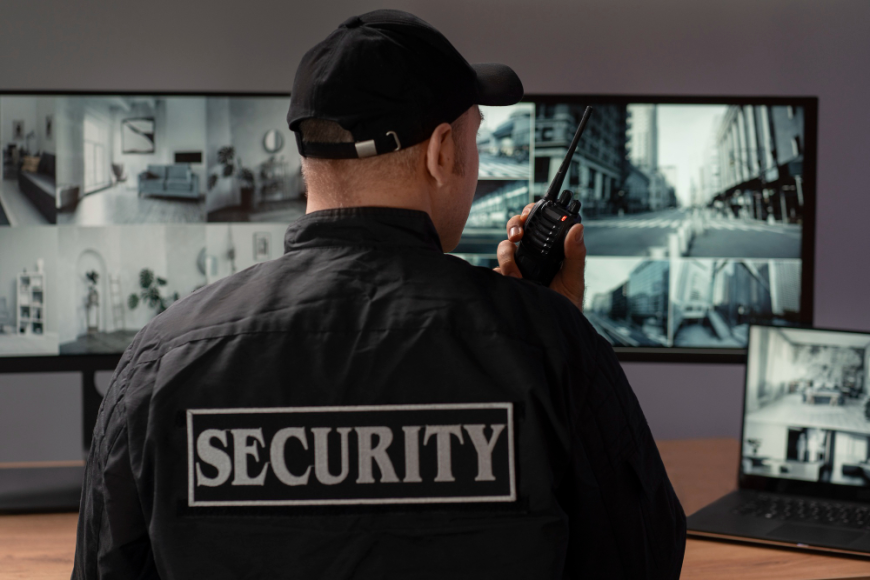What are the 5 C's for Security Guards?
The 5 C's of security guards—Courage, Competence, Communication, Commitment, and Control—define effective, reliable, and professional protection.

In the demanding world of private and public protection, security personnel must demonstrate a level of professionalism and capability that meets the highest standards. The foundation of effective security performance is encapsulated in the 5 C’s—a universally acknowledged framework that defines the core attributes every security guard must possess. These five essential principles are Courage, Competence, Communication, Commitment, and Control. Each of these plays a pivotal role in determining how effectively a guard can safeguard property, assets, and lives in dynamic, high-risk, and unpredictable environments.
Courage – The Foundation of Duty
Courage is the defining trait that enables a security guard to act decisively in the face of danger. This isn’t merely about physical bravery, but also about mental fortitude and emotional strength. Guards must be willing to place themselves between potential threats and the people or property they protect. Whether it’s confronting an intruder, defusing a conflict, or responding during emergencies such as fire or assault, courage ensures that action is taken when hesitation could result in harm.
True courage in security means showing resilience and determination when situations escalate unexpectedly. Security guards stationed at sensitive installations, political rallies, or public events must consistently demonstrate the ability to remain composed under pressure and make decisions that can have critical consequences.
Competence – Mastery of Skills and Situational Awareness
Competence refers to a guard’s ability to perform duties effectively and accurately. It encompasses a wide array of technical skills and field knowledge, from understanding surveillance technology and emergency procedures to the proper handling of incidents involving theft, violence, or vandalism. Competent guards must be physically fit, alert, and trained in security protocols.
Beyond technical skills, competence also includes a deep awareness of surroundings and the ability to recognize suspicious behavior. Manned guarding for high-risk areas especially demands guards who are highly trained in access control, patrolling, emergency response drills, and legal compliance.
Routine evaluations, training programs, and simulated exercises are necessary to ensure guards maintain the sharpness and reliability that competence requires. In sectors such as banking, healthcare, and industrial security, the absence of competence can lead to severe operational and reputational consequences.
Communication – The Key to Coordination and Response
Communication stands at the heart of all successful security operations. Guards must be able to listen attentively, speak clearly, and report accurately. Whether interacting with clients, employees, law enforcement, or members of the public, strong communication skills ensure that potential threats are neutralized efficiently and diplomatically.
During emergencies, guards are often the first point of contact. The ability to quickly and calmly deliver critical information can be the difference between chaos and control. Communication also includes the accurate writing of incident reports, maintenance of logbooks, and giving clear instructions to individuals during evacuations or drills.
Team communication is equally vital. In large premises or multi-guard assignments, seamless coordination through radios, mobile devices, or control rooms is crucial for operational success. Training guards to respond with concise, informative, and assertive communication prepares them for real-world crisis scenarios.
Commitment – Loyalty to Duty and Ethical Responsibility
Commitment means unwavering dedication to the role and responsibility of protecting people, property, and assets. It involves showing up on time, staying vigilant during shifts, and treating the duty as a serious professional undertaking. Commitment also reflects in ethical behavior—avoiding negligence, dishonesty, and misconduct.
Security guards are entrusted with the safety and security of valuable infrastructure and lives. The trust placed in them demands loyalty not just to their employer but to the core ethics of the profession. Guards must uphold integrity even in situations where misconduct or bribery might tempt less dedicated personnel.
Moreover, committed guards maintain consistency in their performance, ensuring that every shift is approached with the same level of seriousness and focus. This mindset fosters a culture of excellence within teams and enhances the overall effectiveness of any security operation.
Control – Mastering Emotions and Situations
Control involves both self-control and situational control. In volatile environments, the ability to stay calm, de-escalate tensions, and take charge of a scene is vital. Guards often deal with difficult individuals, chaotic environments, or emotionally charged situations. They must respond with restraint, judgment, and professionalism.
Self-control is especially crucial in preventing unnecessary use of force or escalation. A guard who can diffuse aggression with words instead of weapons embodies the modern approach to security—centered around conflict resolution and public safety rather than intimidation.
Situational control includes the tactical management of space, crowd control, access restrictions, and emergency evacuation procedures. This requires guards to think strategically, understand crowd dynamics, and anticipate potential risks before they arise.
In high-risk deployments like corporate headquarters, defense sectors, or major event venues, control ensures that environments remain safe, orderly, and secure—even when threats emerge unexpectedly.
Building Excellence in Security with the 5 C's
By embedding the 5 C’s—Courage, Competence, Communication, Commitment, and Control—into every aspect of their training and performance, security personnel become far more than passive observers. They evolve into proactive guardians equipped to handle a broad spectrum of challenges. These principles foster a security culture rooted in professionalism, responsibility, and excellence.
Organizations seeking security guard services in India must evaluate providers based on how well they train and instill these core values in their workforce. An agency that prioritizes the 5 C’s will deliver guards capable of maintaining peace, enforcing rules, and protecting interests across diverse sectors—from retail and residential to industrial and government.
Security challenges are becoming increasingly complex. With the right focus on these foundational principles, security guards are empowered to meet the highest standards of safety, vigilance, and public trust.
